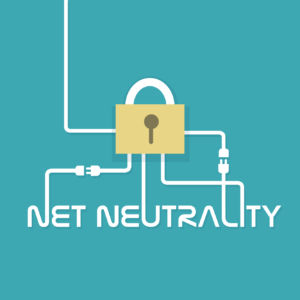Today marks the effective date for the Federal Communications Commission’s Restoring Internet Freedom Order, which reverses the 2015 FCC Open Internet Order that brought the internet under the tighter regulatory umbrella of telecommunications common carriers governed by Title II of the Communications Act of 1934, as amended.
The concept for both decisions involves how best to accomplish net neutrality — a principle of non-discrimination of the speed and content of broadband carriage for internet traffic flowing to residential consumers. The main difference is one of level of government oversight: light-touch regulation for the former, or more traditional telephone-oriented regulation for the latter.
Not surprisingly, these different policy choices aimed at the same outcome have become clouded by the polarizing politics of our time. Advocates on either side are all too ready to paint doom-and-gloom forecasts of what might happen if either approach prevails.
History seems to be on the side of those advocating for light-touch regulation, which was the basis of much of the internet’s growth beginning in the mid-1990s and extending until the Open Internet Order became law.
Those who fear that this approach no longer will be durable to maintain the internet’s attractiveness favor of a more prescriptive approach to prevent harms that may be caused by potential discriminatory behavior of Internet Service Providers. They fear ISPs will offer preferential treatment to affiliated entities or others willing to pay for better technical performance.
The pervasive regulatory solution enacted in 2015 also assumes that the best federal agency to police internet practices is the FCC rather than the Federal Trade Commission, which has a broader legal mandate to work as a consumer protection cop-on-the beat for many types of business activities, including the internet. The new order provides greater confidence in the FTC’s enforcement capabilities.
The federal appeals court in Washington is likely to be the final arbiter of which approach ultimately goes forward, since the now-final FCC order remains in litigation centered on the FCC’s legal authority to reverse course so quickly.
For now, despite what you may hear today through news reports and social media, net neutrality remains as a sound policy embraced by both sides, albeit with different regulatory routes at play. The proxy political war no doubt will continue, however, perhaps even intensified as candidates hit the stump for this year’s mid-term elections.
But as soon as we log on now, it’s likely that what we experience online for the foreseeable future will be just as satisfying — or terrifying — as the day before.

